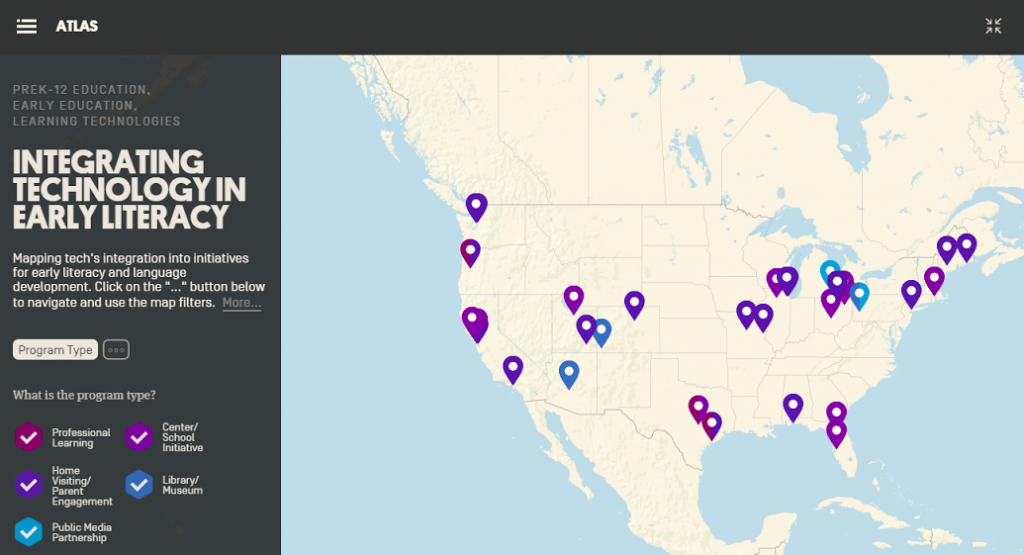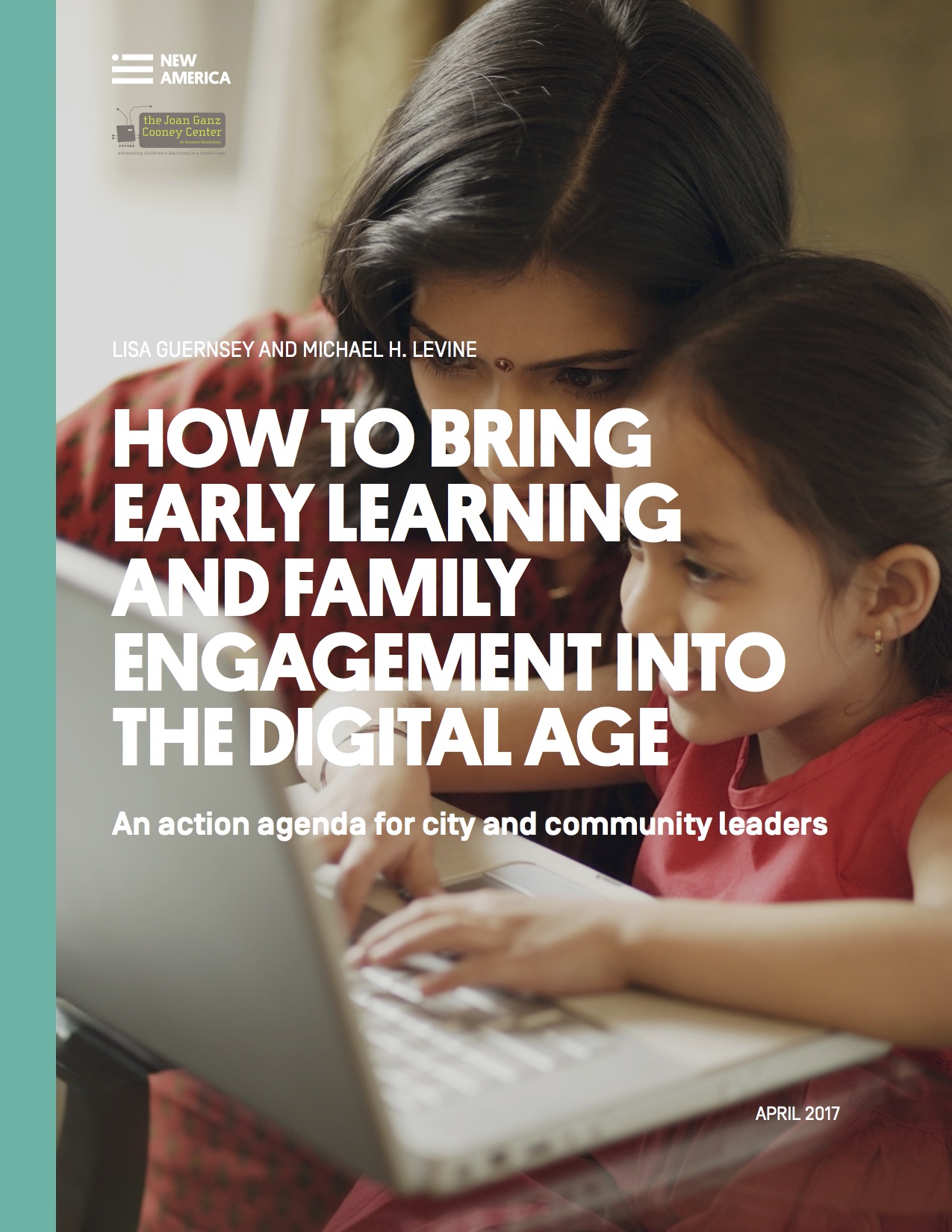
Today, New America and the Joan Ganz Cooney Center at Sesame Workshop announce the release of Integrating Technology in Early Literacy, an interactive map showing more than 30 parenting and early education programs across the country that are embedding new technologies in their efforts to support language development and early literacy.
The map gives users the ability to search and browse for programs that are experimenting with new tools (such as text messaging, apps, remote chat, and video recordings) to augment existing initiatives or catalyze new ones. Information on the map, derives from a year-long canvassing effort that combined online survey instruments with in-depth interviews and analysis of published research. Results are published using Atlas, a data-analysis tool with a geographic interface developed by New America’s Education Policy Program that is free and open for public use. To learn more about how to use the map, watch this instructional video.
Examples of programs on the map include text-messaging programs such as Ready4K in San Francisco that deliver learning tips to parents of young children; home-visiting programs that use video playback and remote coaching to support new parents; school programs such as TutorMate that enables reading tutors to interact with children in online shared reading spaces, and library-based programs such as Cortez Public Library’s “Read to Me” program in Colorado that integrates video clips, in-person storytimes and puppets to engage families in early literacy activities.
The map is designed to put a focus on the need to conduct research on what works; programs can be sorted by four levels of “evidence of impact,” with eight programs hitting the “strong” level, which features randomized controlled trials to determine effectiveness, and eleven programs at the “developing” level, which features programs undergoing research or without documented evidence.
In 2016, New America and the Cooney Center will hold a summer conference to help organizations, communities, and state leaders chart their strategies and prioritize approaches for engaging with families and early educators effectively using digital-age tools. The convening will also build new frameworks for recognizing the implications of digital tools on early childhood policy and research agendas in the latter half of the 2010s.
Funding for InTEL and the summer conference comes from the Joyce Foundation. Early funding for the project came from the Alliance for Early Success and the Pritzker Children’s Initiative.





